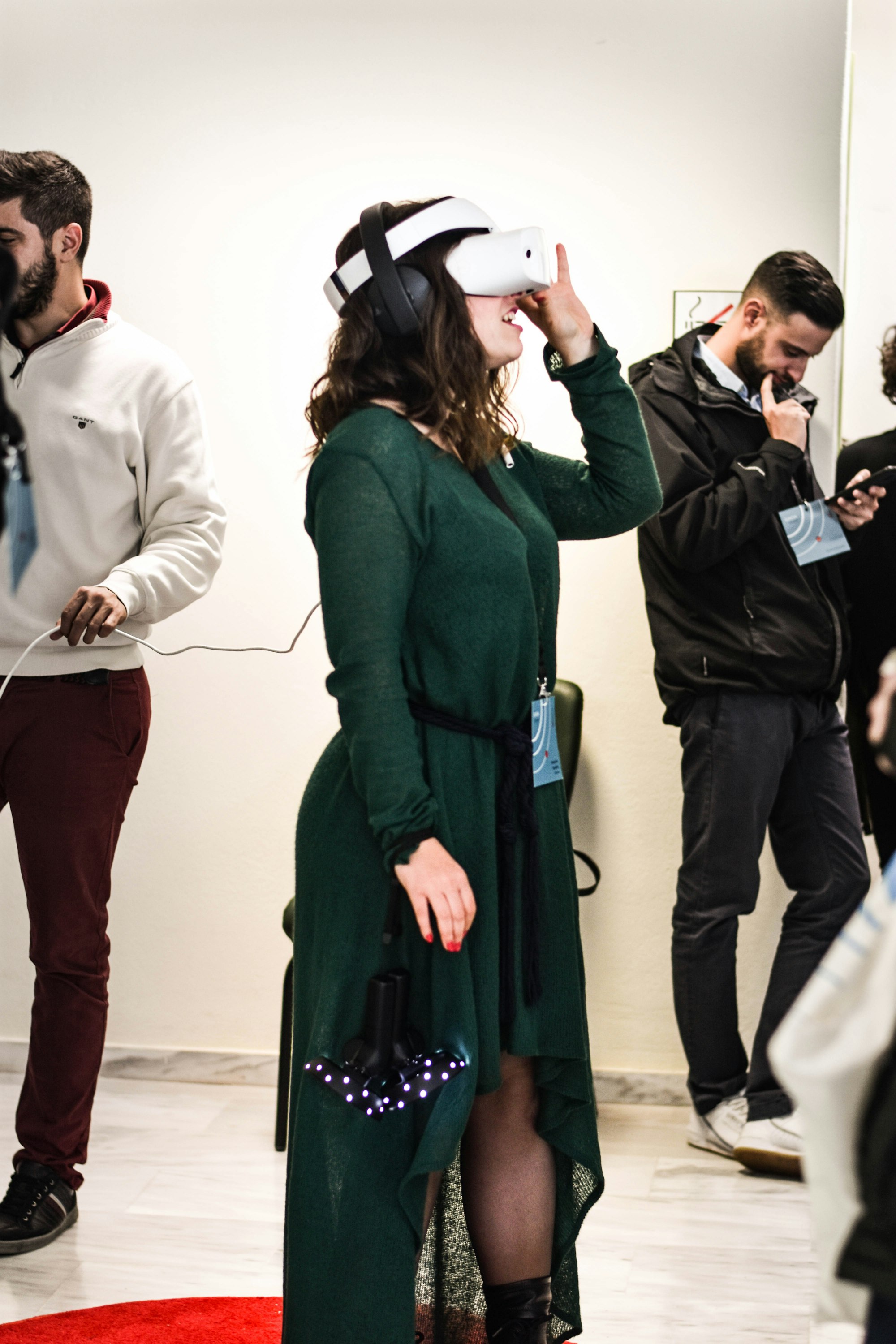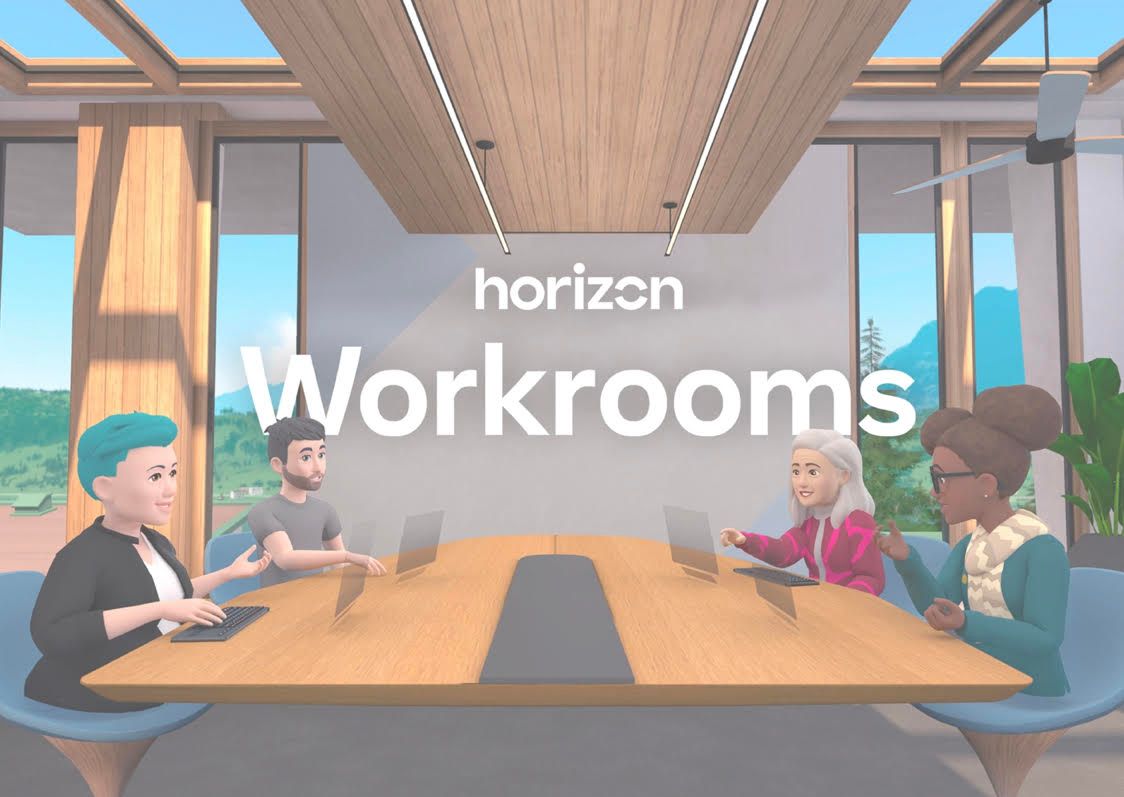So Mark Zuckerberg sees the future of Facebook in the Metaverse; he envisions that we will work from virtual offices, but is that right, and if you accept the premise, wouldn’t augmented reality be better?
‘Facebook isn’t a social media company; it’s a Meterverse company.’ At least, that’s how Mark Zuckerberg reckons the public will perceive Facebook five years or so from now.
But really? Is this a realistic plan? Or is Zuckerberg living not so much in virtual reality as in dream non-reality? Not so much metaverse as madaverse?
Let’s face it, Zuckerberg isn’t much more than a kid (well, he is 37), and things have gone rather well for him in his short life. They say our failures forge us; we learn from our mistakes. On the other hand, if you believe there is an element of luck in business success — not all luck, of course, but some — then someone who has only ever enjoyed incredible success might not fully understand that they are capable of getting things spectacularly wrong, from time to time.

And working in virtual reality, communicating avatar to avatar, the Metaverse our office, does feel a tad weird.

What is the Metaverse?
The word Metaverse was invented by Neal Stephenson when he wrote Snow Crash — a science fiction novel set in a dystopian world — interaction is all avatar to avatar.
Metaverse and Horizon Workrooms
Facebook says, “The way we work is changing. More people are working remotely, more people want flexible work options, and more people are re-thinking what it means to be in an office.” So far, it is right. The likes of James Dyson, Rishi Sunak and Alan Sugar might think that working from home is a bad idea, but fully-fledged technologists, or techopians as we like to call them, understand the benefits of remote work, how technology can enhance the process but also that there are risks.
But there is this thing about eye contact and body language. Eye contact is hardly the same when we are represented by computer graphics.
NEW - Zuckerberg unveils Facebook's "revolutionary" virtual "metaverse," where humans turn into comic characters and interact with each other.pic.twitter.com/a4bAWA8t02
— Disclose.tv (@disclosetv) August 19, 2021
Facebook reckons its new tool for supporting remote working using its Oculus Rift virtual reality headset called Horizon Workrooms is the solution.
It says: “Workrooms is our flagship collaboration experience that lets people come together to work in the same virtual room, regardless of physical distance. It works across both virtual reality and the web and is designed to improve your team’s ability to collaborate, communicate, and connect remotely through the power of VR— whether that’s getting together to brainstorm or whiteboard an idea, work on a document, hear updates from your team, hang out and socialise, or simply have better conversations that flow more naturally.”

And yes, it has correctly identified a problem that needs solving. But whether virtual reality is the answer is another matter.
You could see how virtual reality might support social interaction — as we jump into VR with old friends and new friends frequenting all kinds of strange destinations,
And it doesn’t take much imagination to guess the type of activity which will lead the way. If you haven’t worked it out yet, think of the lesson of VHS and Betamax. In the 1980s, the two video formats fought it out. VHS won, even though techies used to tell me Betamax was the superior platform. Why did VHS win? I am told because it had a better selection of pornographic titles. I suspect the virtual reality equivalent will create the market, and I am not sure it will be altogether healthy — the opportunities for weirdness are so great.
But for remote working, augmented reality, or maybe at a pinch mixed reality, probably with Microsoft via Hololens and Apple in the vanguard, is more likely to gain traction.

Instead of communicating avatar to avatar, you will communicate hologram to hologram, but the hologram will be accurate just you and the people you are communicating with superimposed onto another environment. Eye to eye contact could be there, so could body language. It is just the setting that might not be real.
And you can see how augmented reality could also support social interaction. For example, you could have lunch with your partner, even if you are physically miles or even hundreds of miles apart. I foresee restaurant chains geared to augmented reality. The menu is identical in each restaurant; the furniture is identical — it will be as if you are together. Cameras will be placed, maybe green screens and AI will take a live feed of you and beam it over the ether to appear as a hologram. You will then appear in front of your partner; their hologram will appear in front of you. There just won’t be any physical contact — no footsie under the table, for example. Or if your lunching doesn’t have a romantic aspect to it, just friends meeting, there will be no handshaking or hugging. But hey, this will be the post-Covid world, and physical contact will be so very 2010s!
Augmented reality could support us in other ways. Who is that person you are talking to? Haven’t you met before? Your augmented reality glasses will allow AI to analyse what you are seeing and whisper into your ear — you went to school with them. (They bullied you, you bullied them, they knew your sister, your sister hated them, your sister loved them.)
Virtual reality could have an interesting benefit, however. Imagine a brainstorming meeting in virtual reality in which each person’s avatar is anonymous. You don’t know which avatar pertains to the boss, which avatar pertains to the shy person who never says anything. Shielded by anonymity, there will be no sycophantic agreeing with everything the boss says; the introvert might blossom.
Virtual and augmented reality will change the world but remember what Morpheus said: “Unfortunately, no one can be told what The Matrix is.” Right now, anyone who tells you for sure what the future of augmented/virtual/mixed reality is, are just guessing.






Related News
The AI revolution is here
Jan 25, 2023
The impossible conclusion about technology becoming less disruptive and why it is so dangerous
Jan 20, 2023
Tech bubble! Are you kidding?
Jan 06, 2023